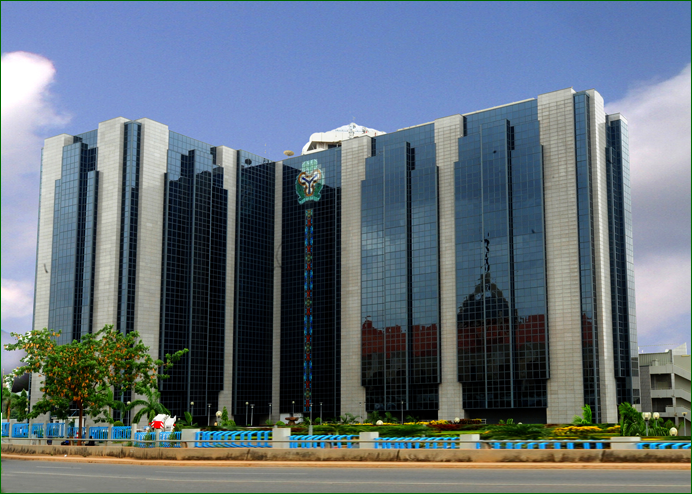The Central Bank of Nigeria’s Monetary Policy Committee (MPC) has held its benchmark interest rate steady, opting to retain a tight monetary policy stance in its ongoing battle to tame inflation and stabilise the economy.
Rising from its 301st meeting held on July 21 and 22, 2025, the MPC resolved to keep all monetary policy parameters unchanged. The Monetary Policy Rate (MPR) remains at 27.5 per cent, the Cash Reserve Ratio (CRR) for deposit money banks at 50 per cent, and the Liquidity Ratio at 30 per cent. The asymmetric corridor was also retained at +500/-100 basis points around the MPR.
According to the Committee, the decision reflects a strategic effort to maintain the current momentum of disinflation, as Nigeria continues to confront persistent inflationary pressures, fragile fiscal conditions, and global uncertainties.
CBN governor, Mr. Olayemi Cardoso, who chaired the meeting, noted that although headline inflation has shown a downward trend for the third consecutive month, Nigeria’s central bank must remain cautious and focused on bringing inflation down to single digits.
“Let me first say that we recognise that our policy toolkit is working, there’s evidence that inflation is coming down. However, our ultimate goal is to reduce inflation to single digits. Much as it’s declining, we are determined to sustain this trajectory until we get there.”
The CBN governor emphasised that the bank’s current policy posture is driven by the need to correct the imbalances created by previous episodes of excessive liquidity, especially through Ways and Means financing and interventionist programmes.
“We’re coming from a situation of enormous money supply, huge injections from Ways and Means, and intervention funds that are still very much present. These don’t disappear overnight. That’s why we are operating in a very tight monetary environment. It’s costly, but it’s necessary,” Cardoso said.
According to the MPC communique, headline inflation dropped to 22.22 per cent in June 2025, down from 22.97 per cent in May, largely due to a decline in energy prices and a more stable exchange rate. However, month-on-month inflation rose to 1.68 per cent, reflecting persistent price pressures from services and imported food.
Food inflation (year-on-year) climbed to 21.97 per cent, up from 21.14 per cent, driven by the rising cost of processed foods, while core inflation, which excludes energy and agricultural produce, increased to 22.76 per cent from 22.28 per cent.
The MPC noted several positive indicators in the domestic economy. Real Gross Domestic Product (GDP) grew by 3.13 per cent in Q1 2025, up from 2.27 per cent in the same period of 2024, and the Purchasing Managers’ Index (PMI) data shows that economic activities remain on an expansionary path.
The external sector has also remained resilient. Gross external reserves stood at $40.11 billion as of July 18, 2025, representing 9.5 months of import cover. Improved crude oil production, rising non-oil exports, and reduced import demand have supported foreign exchange stability.
Cardoso specifically highlighted renewed transparency and accountability in the oil sector, including recent reports that Nigeria is now meeting its OPEC production quota. He lauded the Nigerian National Petroleum Company Limited (NNPC) for publishing its monthly profit figures, describing it as “very encouraging.”
“These green shoots—whether from oil earnings, enhanced transparency, or macro-stability—will help complement the Bank’s inflation-fighting efforts,” Cardoso said.
The MPC also reviewed the state of the financial system, noting that it remains sound and stable. The ongoing bank recapitalisation exercise has gained momentum, with eight banks fully meeting the new capital requirements, and others making steady progress. The Committee urged the CBN to sustain its oversight and ensure that the financial system remains resilient.
Internationally, the MPC observed that global growth continues at a modest pace but is threatened by ongoing tariff wars and geopolitical tensions, which have disrupted supply chains and increased the cost of imported goods.
Advanced economies have experienced a slowdown in disinflation, prompting their central banks to maintain a cautious stance. In emerging markets, monetary authorities continue to calibrate their responses to local inflation conditions.
Analysts said the mixed inflation signals and structural constraints have made the MPC’s decision to maintain the current policy stance a prudent one. Former MPC member and development economist, Professor Michael Obadan, agreed that the decision to keep the rates unchanged was justified given the prevailing macroeconomic realities.
“Even though inflation has declined slightly, it is still very high. Without the recent rebasing of the CPI, we’d be talking about inflation at 32 or 33 per cent. So fundamentally, not much has changed,” Obadan noted.
He added that government spending continues to be high, with a bloated budget estimated at over N52 trillion, alongside persistent insecurity which hampers food production. These factors, he said, are sustaining inflationary pressures.
“If the fiscal authorities had improved the quality of spending, curtailed waste, and improved security such that displaced farmers could return to their fields, then the CBN might have had more confidence to reduce rates,” he added.
Chief executive of the centre for the Promotion of Private Enterprise (CPPE), Dr. Muda Yusuf, echoed similar sentiments, stressing that although the economy needs cheaper capital for growth, the inflationary environment makes easing rates a risky move.
“Many of us anticipated that the CBN would hold rates, especially with the month-on-month inflation still rising. Inflationary drivers like energy costs, insecurity, forex volatility, logistics challenges, and high cost of funds continue to put pressure on the supply side,” Yusuf said.
While acknowledging that current rates are very restrictive for the private sector, especially small and medium enterprises, Yusuf admitted that the current tight policy stance has supported forex inflows by attracting portfolio investors seeking high yields.





